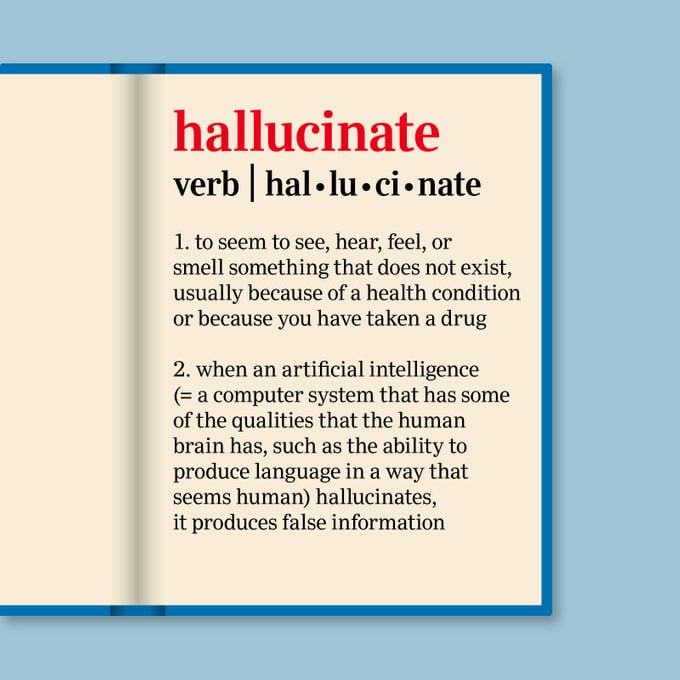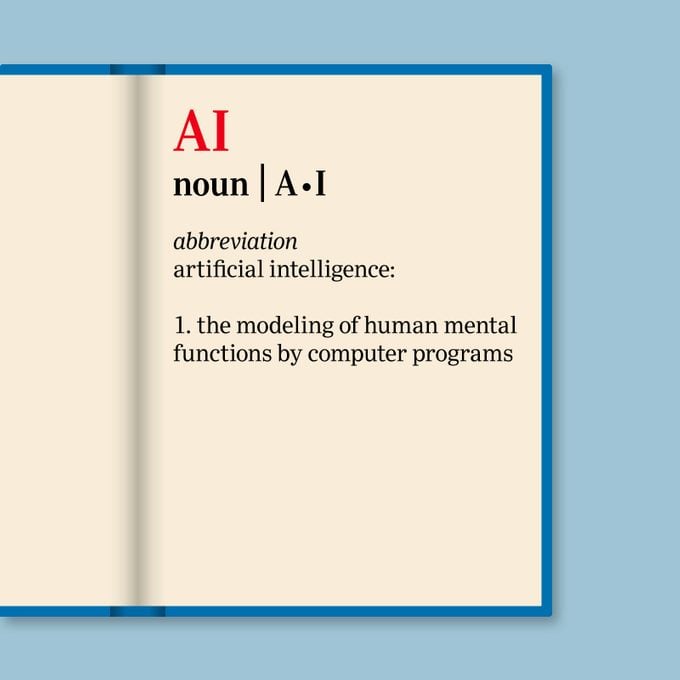What word defined the past year for you? Find out if your guess matches the actual word of the year from two prominent dictionaries.
If there was one word that described the year you just had, what would it be? Maybe it’s one of the 690 new words and phrases Merriam-Webster just added to its dictionary—like beast mode for the workout routine you’ve kept up with since New Year’s, or chef’s kiss after you finally figured out how to make the perfect chocolate chip cookie. Or maybe it’s something you heard repeatedly in conversation, like a cultural trend, food, acronym or even a concept like the Roman Empire. (Yes, the actual Roman Empire.)
Whatever your personal word of the year may be, some words tend to be more broadly significant and influential, according to the world’s most prominent dictionaries. These are the terms that might refer to a cultural zeitgeist, a controversy or our larger thoughts (and often anxieties) about the world. Cambridge Dictionary and Collins Dictionary recently revealed their words of the year for 2023, and they have all these components. Can you guess what they are? Read on to find out.
Get Reader’s Digest’s Read Up newsletter for more news, humor, cleaning, travel, tech and fun facts all week long.
Cambridge Dictionary’s word of the year

Cambridge Dictionary’s pick for 2023 is—drum roll, please—hallucinate. You might be scratching your head right now, since this isn’t a new word, per se. Of course, the common definition of hallucinate is “to seem to see, hear, feel or smell something that does not exist, usually because of a health condition or because you have taken a drug.” In 2023, however, to hallucinate can mean something different, thanks to AI.
According to Cambridge‘s alternate definition of hallucinating, “when an artificial intelligence (= a computer system that has some of the qualities that the human brain has, such as the ability to produce language in a way that seems human) hallucinates, it produces false information.” Sure, using AI can be fun for creating dog selfies or could even help you land a job, but it’s prone to producing misleading or made-up facts—or “hallucinating.”
Which means we’ll likely be dealing with more misinformation, at least in the near future. “The fact that AIs can ‘hallucinate’ reminds us that humans still need to bring their critical-thinking skills to the use of these tools,” notes Wendalyn Nichols, Cambridge Dictionary‘s publishing manager. Translation: Don’t believe everything you read—or that AI tells you!
Collins Dictionary’s word of the year

Those dictionary people are apparently (ahem) all on the same page—or at least the editors at Cambridge and Collins are. Similar to Cambridge‘s choice, Collins Dictionary‘s word of the year is the broader term AI. Collins chose this term because it is “considered to be the next great technological revolution,” “has seen rapid development” and “has been much talked about in 2023.”
ChatGPT was released in late 2022, with companies attempting to use it to cut costs, worrying employees that it would replace their jobs. AI pioneers and creators began expressing concerns that AI could be “dangerous” and manipulated by “bad actors.” President Biden even issued an executive order on “safe, secure and trustworthy artificial intelligence.”
And then, of course, there were the months-long writers and actors strikes, much of which hinged on the potential use of AI. While humans eventually won in both scenarios—with the new contracts stating that AI is not allowed to write or rewrite content or use an actor’s likeness in a way that the actor didn’t originally agree to—this is likely the first battle of many to come, in a variety of industries.
Sources:
No comments:
Post a Comment